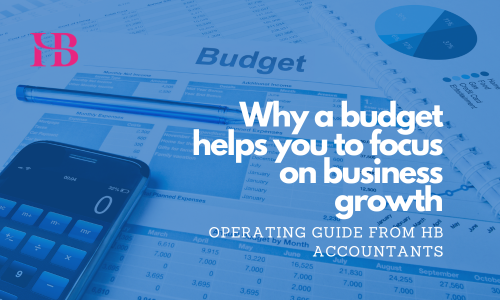Finance professionals are not only responsible for financial transactions and reporting, they are directly involved in the operation of their organisations; providing strategic direction and high-level decision making. However, with this expanded responsibility and new technology, there comes new challenges.

Here are 5 Finance Director’s worst nightmares and strategies for either preventing or mitigating the fallout
1. An accountancy blunder that gets out of hand
Finance people are naturally scrupulous and conscientious, so the thought of any accountancy blunder is mortifying, let alone if the error is not picked up internally and causes an issue in the public domain.
Even minor mistakes can sometimes seriously compromise financial accuracy and integrity. They can lead to regulatory fines and in the worst cases, impact customer and stakeholder confidence in the company.
A report issued earlier this year stated that 18% of US company accountants make financial errors at least daily, with a third making at least a few financial errors every week, and over half (59%) making several errors per month. A big problem is capacity, so a lot of errors are made due to rushing to release reports, information, and earning statements.
There are a few ways to mitigate what is in effect human error. The first is to check, recheck and check again any reports that are sent into the public domain. Use second and third pays of eyes and both internal and external staff. If capacity really is the issue, this is a good reason to employ additional staff or even outsource the more regular tasks so that you can concentrate on the details.
2. A cash flow crisis
Whether due to mismanagement, an unexpected downturn in sales or a global pandemic(!), the fallout from a cash flow crisis has a huge impact on a business. It can mean that short-term obligations, such as payroll or debt repayments, cannot be met and longer term a cash flow crisis could lead to layoffs or even insolvency.
Not only is there a practical impact, there may also be a huge emotional toll from cash flow problems and even more concerning, the senior leadership of the business may face legal repercussions.
When cash flow slows, the most important thing to do is approach the issue with a calm and pragmatic focus. Take stock of what resources are available and how to access them – this may be through short term finance or additional resources to concentrate on credit control. It is vitally important to be transparent about the problem and engage with all relevant stakeholders.
HB Accountants’ TOP TIP:
Cash flow issues are not unusual so plan ahead for how you will deal with it when it happens. Being aware of potential problems will always help so start financial forecasting to uncover issues in advance. Read our blog about how to prepare a financial forecast here.
3. A cyber-attack holds your records to ransom
Sadly, the chance of a cyber-attack is increasing. According to a government report, half of UK businesses (50%) and around a third of charities (32%) report having experienced some form of cyber security breach or attack in the last 12 months. This is much higher for medium businesses (70%), large businesses (74%) and high-income charities with £500,000 or more in annual income (66%).
The report goes on to share that the most common type of breach or attack is phishing (84% of businesses and 83% of charities). This is followed by people impersonating organisations in emails or online (35% of businesses and 37% of charities) and then viruses or other malware (17% of businesses and 14% of charities).
Inevitably, the financial implication of an attack places finance directors on the frontline of managing the fallout. If systems are held to ransom, they still need to find a way to run payroll, pay suppliers, and manage finance payments. This is alongside deciding whether to pay the ransom and manage any direct costs from the attack.
HB Accountants’ TOP TIP:
As it is likely that your business will face a cyber-attack at some point, work closely with your tech team to put in place a way to mitigate the most common threats: this is an investment that is worth making. Alongside this, undertake a risk assessment and create a plan for what you would do IF the worst happens. Understand what your insurance covers, for example, and keep records of insurance and key financial banking details offline so you can still access them even if your systems are down.
4. Falling foul of financial regulations
Unintentionally making an error that is picked up by legislative authorities can damage the business, damage your reputation and may be costly with huge fines being levied.
Regulations are regularly updated so it’s imperative that you are aware and act on these changes. This may be complicated if you work across multiple regions and countries but staying up-to-date with relevant financial regulations is crucial to ensure that your compliance strategy is relevant and pragmatic.
There are several ways to understand and stay up-to-date on the financial rules that apply to your business. You could pick up information from industry publications or conferences, or you can sign up to alerts from regulatory agencies such as the Financial Conduct Authority (FCA), Prudential Regulation Authority (PRA) and Bank of England (BoE). Other options include using compliance management software solutions or by hiring experts to personally inform you about changes.
HB Accountants’ TOP TIP:
Conduct regular internal and external audits to help identify compliance gaps within your processes. They also increase awareness across your team and demonstrate your commitment to compliance.
5. Personal payroll data gets into the public domain
As a result of regulatory requirements including the General Data Protection Regulation (GDPR), data protection is now a top priority in all organisations including the finance team. Whether your payroll is handled in-house or outsourced to a third party, you have responsibilities under GDPR to store data securely, process data lawfully and have systems in place to deal with any data breach. There are several areas in the payroll office vulnerable to data breaches from the payroll software to spreadsheets and emails that may contain personal information. Any information sharing amongst your team could all increase the possibility of a data breach.
Not only is this important to protect your staff, it is also to prevent your company being subjected to substantial fines. The Information Commissioner’s Office (ICO) has the power to impose a penalty or fine of up to £17 million or 4% of annual global turnover .
Bear in mind that the finance team is likely to also hold information about customers and suppliers, bank account details and credit card numbers, credit histories and addresses. All this data is subject to GDPR too.
How can we help?
The HB team is always available to support your accountancy needs, support Finance Directors, manage audits, and discuss ways to boost your productivity.
If you would like to learn more about the services that we offer, discover how we can give you real confidence in the future of your business, or if you are a larger business that requires auditing, then contact us today. We’re accountants for business and we are here to help you grow efficiently.
The information contained above is for general guidance purposes only. Whilst every effort has been made to ensure the contents are accurate, please note that each individual has different circumstances and it is essential that you seek appropriate professional advice before you act on any of the information contained herein. HB Accountants can accept no liability for any error.
Read our latest blogs below
- HMRC Advisory Fuel Rates (AFRs) from 1st June 2025
 HMRC has published the latest Advisory Fuel Rates (AFRs) which apply from 1 June 2025. AFRs are the official rates used when reimbursing employees for business mileage in company cars. They’re reviewed every quarter (February, May, August and November) and adjusted in line with fuel prices.
HMRC has published the latest Advisory Fuel Rates (AFRs) which apply from 1 June 2025. AFRs are the official rates used when reimbursing employees for business mileage in company cars. They’re reviewed every quarter (February, May, August and November) and adjusted in line with fuel prices. - How an audit can help your business (and actions you can take to make it go smoothly too!)
 An audit may be a legal requirement for your business but a well managed audit can also boost your business growth and ensure that it is operating in the best way possible.
An audit may be a legal requirement for your business but a well managed audit can also boost your business growth and ensure that it is operating in the best way possible. - Why a budget helps you to focus on business growth
 Are you looking for clarity over the future direction of your business? Do you want to know the actions you should take in order to grow your business? Then consider taking time to create a budget for your business.
Are you looking for clarity over the future direction of your business? Do you want to know the actions you should take in order to grow your business? Then consider taking time to create a budget for your business. - How a SME Owner Can Create More Time
 SME owners and managers – are you part of the one in five small and medium-size enterprise managers that work on average an additional 3 hours a day on a regular basis? Or one of the 33% that claim that there just aren’t enough minutes in a day to get everything completed? (The Independent study … Continue reading
SME owners and managers – are you part of the one in five small and medium-size enterprise managers that work on average an additional 3 hours a day on a regular basis? Or one of the 33% that claim that there just aren’t enough minutes in a day to get everything completed? (The Independent study … Continue reading - A New Academic Year for our Student in Zambia
 As the new academic year unfolds in Zambia, we are delighted to share an update about our sponsored student, Getrude. Currently in her second year at Chalimbana University, Gertrude is studying Business Administration in Accounting and Finance.
As the new academic year unfolds in Zambia, we are delighted to share an update about our sponsored student, Getrude. Currently in her second year at Chalimbana University, Gertrude is studying Business Administration in Accounting and Finance. - Benefits in Kind via the Payroll
 From April 2027, Benefits in Kind (BIK) payments will need to be paid and recorded via payroll each month. Businesses need to prepare for this change.
From April 2027, Benefits in Kind (BIK) payments will need to be paid and recorded via payroll each month. Businesses need to prepare for this change.

